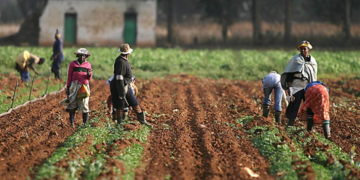How would you describe the current Nigerian business environment?
Since COVID-19 pandemic, business has been difficult globally with currency instability and hyperinflation in several countries, including in most developed countries. Similarly, the Nigerian business environment has been unusually difficult, nonetheless it is beginning to stabilise.
What are the common issues micro businesses face today in Nigeria?
The common issues are poor access to electricity, difficult access to credit, poor awareness of insurance services such that market fires tend to irreversibly destroy their livelihoods, challenges in renting shops, inflation, and FX instability.
How many businesses currently benefit from your lending, solar equipment and now savings facility and what has been the impact on the businesses?
We have supported over 7,500 customers, provided 1.8MW solar capacity, eliminated 29,937 US tons of CO2 annually and saved $1.05m on petrol generator running cost for microbusinesses.
What is the role of micro-businesses in boosting the nation’s economy, especially in the area of poverty reduction, financial literacy, and employment opportunities?
According to Nigerian Bureau of Statistics, there are 41 million MSMEs in Nigeria, and they contribute 40 per cent to GDP and 84% to employment. MSMEs hold the key to localised production and innovative products and services that can create good quality jobs and permanently reduce poverty in Nigeria.
Any society that is serious about eradicating poverty will empower micro-businesses because they can serve as an effective channels for wealth distribution through commerce.
What is your take on the Naira Redesign policy and the attendant Naira crisis?
The Naira redesign policy was well intentioned to curb illicit flow of Naira notes which can be a serious bane for economic control and forecasting. Nonetheless, the attendant Naira crisis is quite unfortunate because it could have been avoided through proper planning and change management. Interestingly, the same currency redesign policy was implemented in India in 2016 for the same reasons and with an even shorter notice than CBN gave Nigerians. Similarly, this led to serious cash crunch and loss of businesses, jobs and economic instability in India. If the Nigerian decision makers had studied historical precedences, the Indian experience could have served as a case study to enable them to plan properly and proactively to avoid the attendant Naira crisis.
Furthermore, the timing of February 2023 deadline to stop using the old Naira notes was ill-advised because economic activity starts to pick up precisely in February following Christmas and New Year festivities, and the government elections already expectedly slowed down the economy. The choice of February introduced unforeseen risks and issues.
What effects do you think the cash crunch has had on businesses recently and how has your firm been able to scale through and what does the future hold for you in the coming months and years?
It is yet to be determined whether the Naira redesign policy achieved the main objective of eliminating illicit flow of Naira. However, the immediate impact is both negative and positive. The negative impact has been further economic slowdown, difficulty for employees that use public transport to get to work, increased poverty in rural communities, further distrust of public officers, and overwhelm of digital banking channels. On the positive side, it has increased adoption of digital payment channels, which will yield positive results for the economy in the long term.
Our firm has been able to scale through because of prudent management of liquidity risk. We have staunch faith in Nigeria’s potential for prosperity, therefore, in the coming months and years, we will continue to deepen our investment in Nigeria by introducing additional services such as insurance brokerage and digital payments and evolving from a money lending and co-operative company to a Microfinance bank.
We’ve got the edge. Get real-time reports, breaking scoops, and exclusive angles delivered straight to your phone. Don’t settle for stale news. Join LEADERSHIP NEWS on WhatsApp for 24/7 updates →
Join Our WhatsApp Channel










